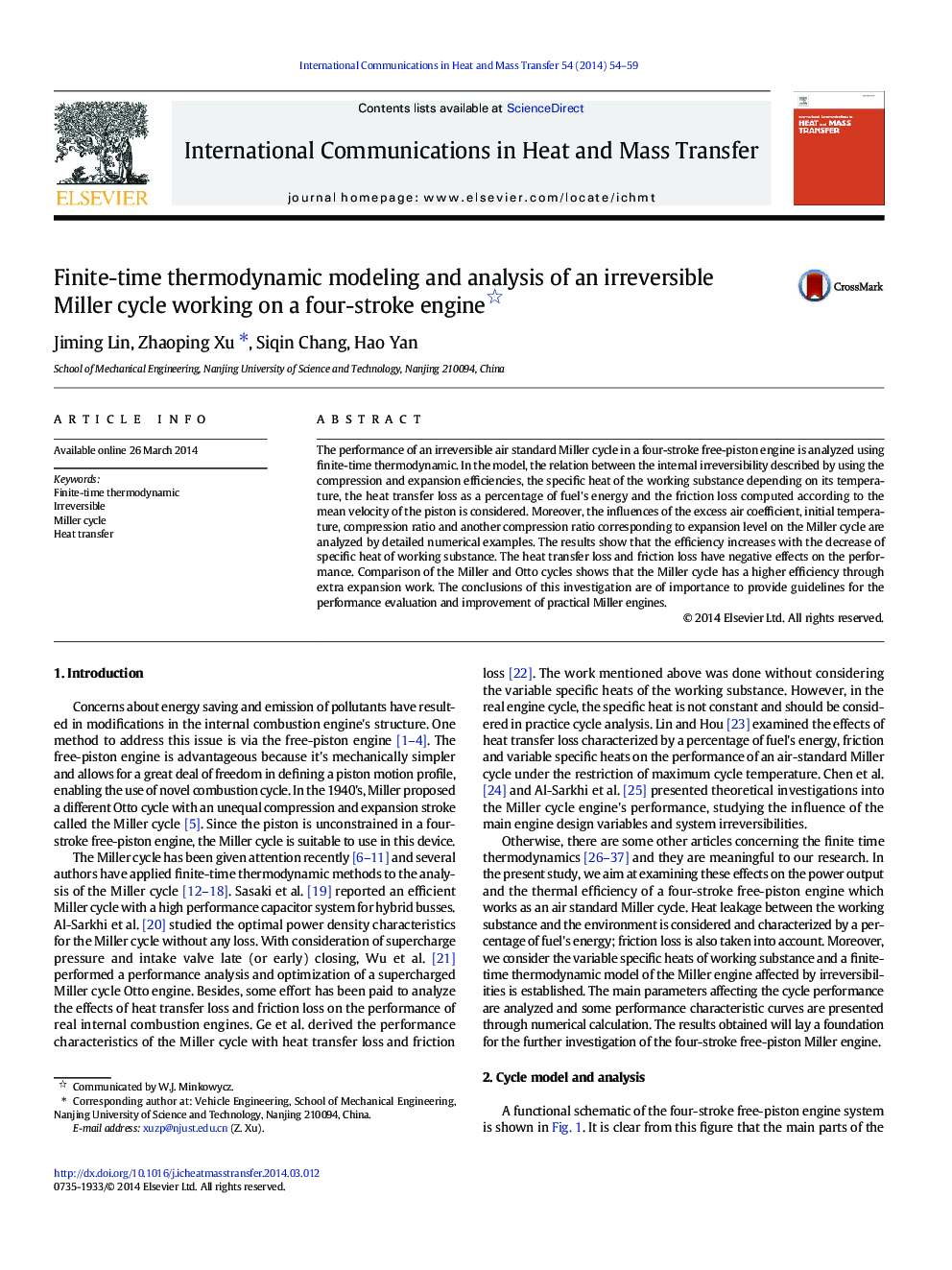| Article ID | Journal | Published Year | Pages | File Type |
|---|---|---|---|---|
| 653252 | International Communications in Heat and Mass Transfer | 2014 | 6 Pages |
The performance of an irreversible air standard Miller cycle in a four-stroke free-piston engine is analyzed using finite-time thermodynamic. In the model, the relation between the internal irreversibility described by using the compression and expansion efficiencies, the specific heat of the working substance depending on its temperature, the heat transfer loss as a percentage of fuel's energy and the friction loss computed according to the mean velocity of the piston is considered. Moreover, the influences of the excess air coefficient, initial temperature, compression ratio and another compression ratio corresponding to expansion level on the Miller cycle are analyzed by detailed numerical examples. The results show that the efficiency increases with the decrease of specific heat of working substance. The heat transfer loss and friction loss have negative effects on the performance. Comparison of the Miller and Otto cycles shows that the Miller cycle has a higher efficiency through extra expansion work. The conclusions of this investigation are of importance to provide guidelines for the performance evaluation and improvement of practical Miller engines.
